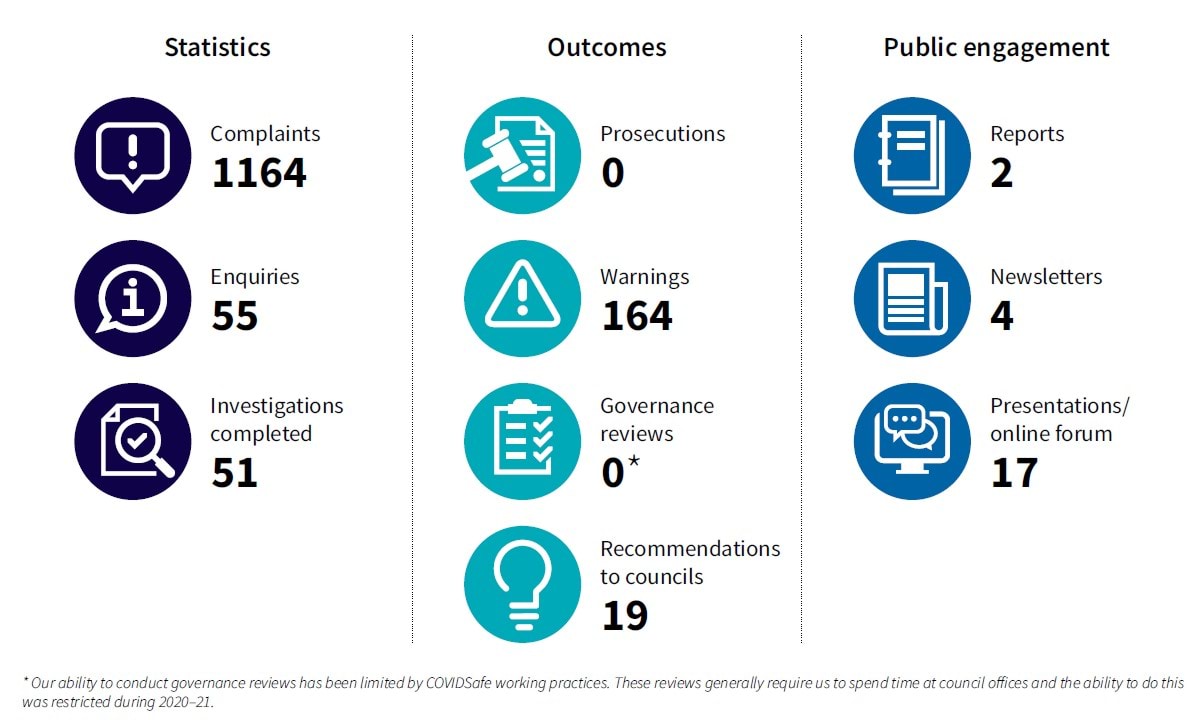Explanation of key categories and terms
Complaints: A complaint is a matter lodged with or referred to the Inspectorate for assessment in its capacity as the dedicated integrity agency for local government in Victoria. Most of the complaints we receive relate to councils but not all complaints we receive fall within our remit.
Enquiries: These include relevant contacts with the Inspectorate other than recorded formal complaints. Enquiries may involve multiple contacts with the public but only a single reference is included here.
Investigations completed: When the Inspectorate receives a complaint, an assessment is conducted to determine the best course of action. Formal investigations are resource-intensive, so we are only able to dedicate resources to a limited number of investigations at any given time. Considerations for allocating resources include the prospect of matters proceeding to prosecution or being the subject of a public report.
Prosecutions: The Chief Municipal Inspector is empowered by the Local Government Act to prosecute individuals in a court. This power is taken very seriously and prosecutions are only pursued under certain circumstances. The Inspectorate must consider whether there is a reasonable prospect of conviction, whether or not it is in the public interest and whether or not there is an alternative to prosecution that may be more appropriate.
Warnings: A warning is issued when a prima facie breach of the Act is substantiated, but circumstances show that a prosecution may not be warranted. Warnings given to a person are considered if any further substantiated complaints are made against the same person.
Complaint assessment: When the Inspectorate receives a complaint, it undergoes an initial assessment to determine, among other factors, if the allegations fit within its legislative remit or the matter should be transferred to another agency. A matter is not considered under investigation at this stage.
Prima facie: In the Inspectorate’s work, this refers to the presence of sufficient evidence to establish a fact or raise a presumption unless disproved or rebutted. It can also refer to matters that, on first appearance, may be a breach of offence under the Act but are subject to further evidence or information.
Public interest disclosure: In some circumstances, a complaint may be considered as a public interest disclosure (previously known as a protected disclosure or ‘whistleblower’ complaint). If a complaint appears to show that a councillor or member of council staff has engaged or proposes to engage in improper conduct, this could constitute a public interest disclosure. These matters must be sent to the Independent Broad-based Anti-Corruption Commission (IBAC) so they can determine whether or not the protections under the public interest disclosure regime apply.
Updated


